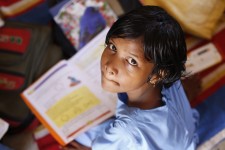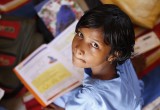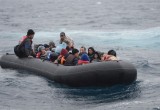Virtual Reality Creates Real Opportunities for Survivors of Persecution Around the World

New York, NY, April 8, 2016 (Newswire.com) - This September, as millions of American students begin a new school year, 60 displaced refugees and survivors of human trafficking in Africa and the Middle East will embark on a one-year educational journey to reclaim their freedom and turn their dreams for a better life into reality … using virtual reality. This pioneering distance education program, which combines the use of computer-generated avatars and video conferencing technology, is the newest project of Safe Port Initiative (SPI), a US-based human rights organization that provides advocacy and recovery services to survivors of human trafficking, displaced refugees, and victims of systematic persecution worldwide.
“One of the most unique components of our distance learning program,” says SPI founder Christine Buckley, “is our partnership with providers of corporate meeting spaces in 3000 locations around the globe. By using these meeting spaces, which are equipped with audio and video conferencing technology, we have the ability to deliver avatar-driven curriculum virtually anywhere in the world without the need to build schools or identify qualified teachers in every location. In this way, we are able to provide life-transforming education to vulnerable, marginalized populations at a cost of just $10 per student per week.”
Our goal is to help survivors break free from the cycle of abuse and poverty that made them susceptible to victimization in the first place, and equip them to empower others in their communities to do the same.
Christine Buckley, Founder, Safe Port Initiative
Rather than sending non-native teachers into the communities they serve, SPI trains local proctors to facilitate lessons, help students acclimate to a classroom setting, ensure that students have all necessary materials and supplies, and serve as regional liaisons to the US corporate headquarters. By hiring indigenous proctors, SPI is able to ensure that the content and delivery of curriculum is culturally sensitive and that the organization’s presence in a community empowers local citizens and enhances the local economy. According to Buckley, “We want our global footprint to be one that guides people to a better life on whatever path they choose, without stepping on the traditions and beliefs they hold dear. Our goal is to help survivors break free from the cycle of abuse and poverty that made them susceptible to victimization in the first place, and equip them to empower others in their communities to do the same.”
The distance learning pilot program scheduled to launch this September will offer primary, secondary and vocational curriculum to 40 survivors of human trafficking in Kenya and Morocco, and 20 displaced refugees in Lebanon. All three countries are on the US State Department’s Tier 2 Watch List for human trafficking, and students will range from seven-year-old survivors of child labor to adult refugees in need of new skill sets to survive outside of their homeland. The total cost of the one-year pilot program will be $28,800.
To learn more about SPI’s distance learning program, visit http://www.safeportinitiative.org/distance-learning.html. To support the 2016 pilot program, visit SPI’s Indiegogo Campaign at https://igg.me/at/safeport/x/13634379.


